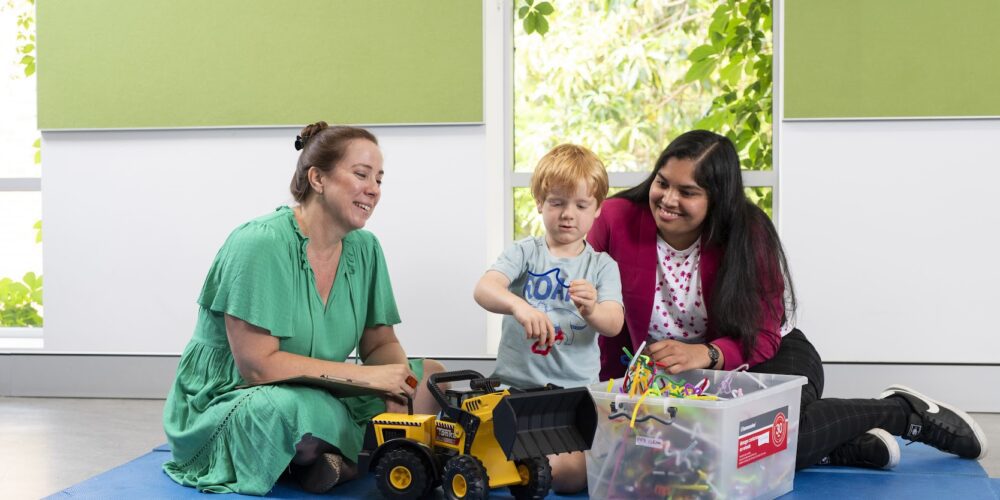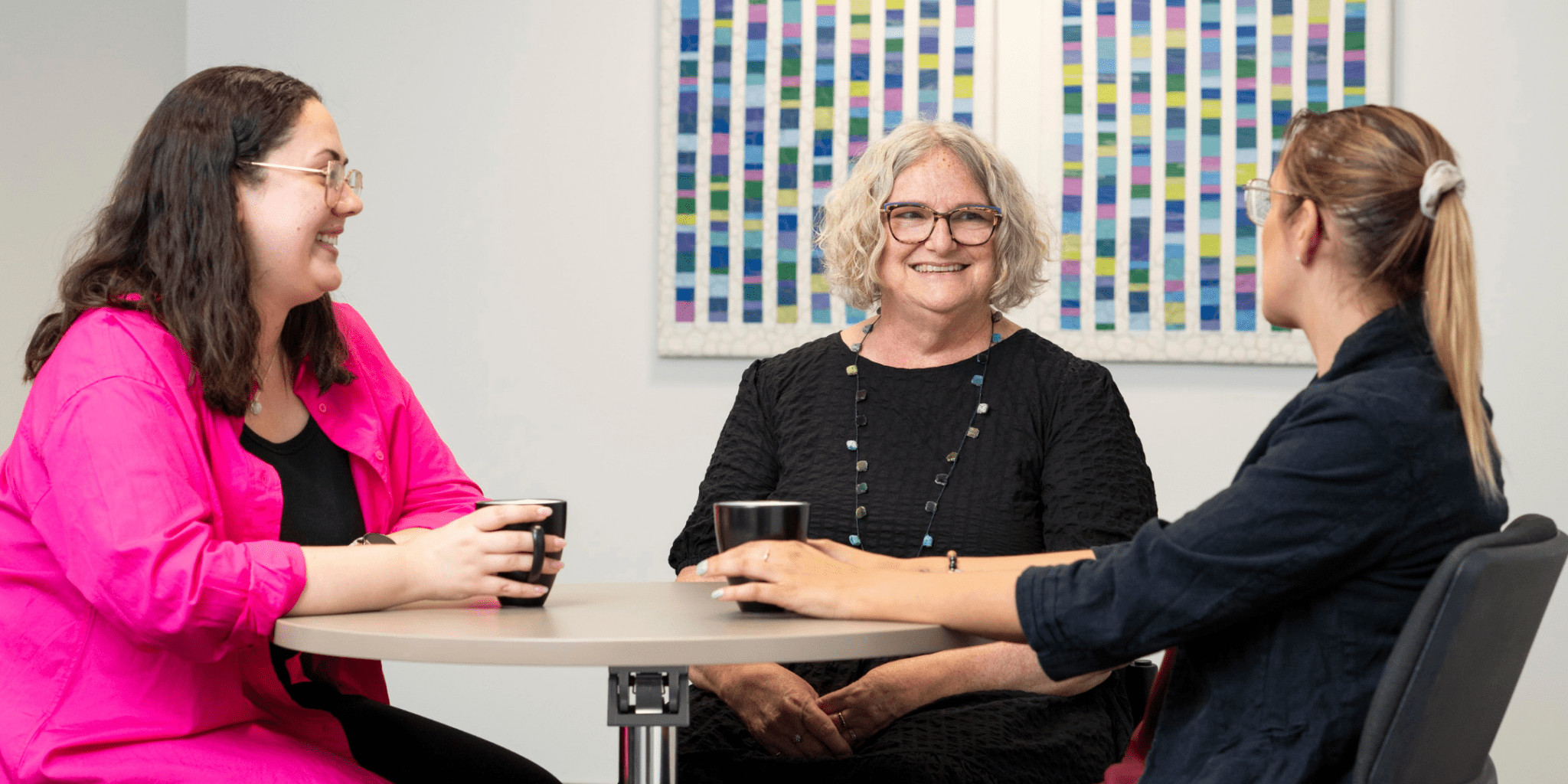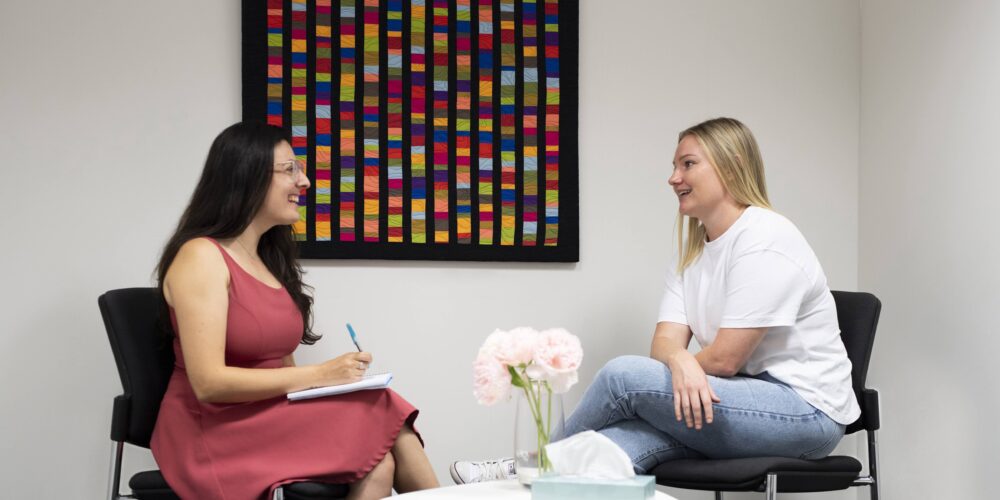A career in social work is spent championing health, wellbeing and justice for the most vulnerable in your community. In this article, we’ll explore everything you need to know about building a career in this essential and rewarding field.
Read on or skip ahead for more information.
- Understanding social work
- How to (actually) become a social worker in Australia
- Social work income and career opportunities
Who, what, where and why: Understanding social work
While we’ve all heard the term ‘social worker’, do we really know what a career in social work involves? If you’re unsure, you’re not alone.
Let’s discover what a career in social work looks like by exploring the following topics:
- What is social work?
- What are the three levels of social work?
- The seven skills of highly effective social workers
- What type of person is best for social work?
What is social work?
Social workers are allied health practitioners who use diverse skills to assess and address the challenges facing individuals, families, communities and population groups.
In this profession, you’ll offer support and guidance through issues including those related to childhood trauma, addiction, gambling, grief and social injustice.
Social work is a profession dedicated to people. Whether working one-on-one with a client or tackling complex issues at a policy level, in social work, you’ll utilise practical skills and a deep understanding of human behaviours to create positive change in people’s lives.
See what social work graduates from Curtin University say about their studies and careers.
What are the three levels of social work?
Social work is often thought of as a practice that takes place on a small scale, like supporting an individual one-on-one – but that’s only one-third of the story.
“In social work, you can zoom in and work with the individual, or you can zoom right out and work bigger picture – and anywhere in between,” says Course Coordinator for Curtin’s Master of Social Work (Qualifying), Robin Shortland-Jones.
This ‘zooming in’ and ‘zooming out’ can be categorised into three levels: micro, mezzo and macro.
When you study a Bachelor of Social Work or a Master of Social Work (Qualifying) at Curtin, our practical learning opportunities allow you to try all three levels of social work. Skip forward to learn more about social work degrees.
The seven skills of highly effective social workers
Social Work Manager at St John of God, Midland, Caroline Horlock, highlights that as a social worker, “you can really use your skills to support people to draw on their own strengths and provide them with opportunities to enhance their lives.”
That said, you’ll develop and nurture some key practical and transferrable skills while studying either a Bachelor of Social Work or a Master of Social Work (Qualifying) at Curtin.
These skills include:
- active listening
- communication
- cultural competence
- empathy
- interprofessional collaboration
- problem-solving
- professional self-care.
What type of person is best for social work?
When asked what makes for a great social worker, Robin explains, “If you’ve got a strong feeling that things are unjust or unfair, and you would like to make a difference – either on an individual level or a big-picture level – you’ll find social work rewarding.”
For some students – particularly those who know they want to work in healthcare but haven’t been able to find an area of the field that suits them – social work is like ‘putting on a glove’.
“There’s a real sense of it just fits, and that’s quite powerful – to see people finding where they can direct their passion,” Robin emphasises.
Ultimately, if you have a calling to serve your community and you’re considerate enough to wonder, ‘Am I the right type of person for a career in social work’ – you’re the right person for a career in social work.

How to (actually) become a social worker in Australia
Now that we understand social work let’s explore the qualifications you’ll need to enter the field. In this section, we’ll answer:
- How do I become a social worker in Australia?
- Which university degree is best for a social worker?
- Can you be a social worker without a degree in Australia?
- How hard is a Bachelor of Social Work?
- Which university is best for social work in Australia?
How do I become a social worker in Australia?
In Australia, social work is regulated by the Australian Association of Social Workers (AASW), which sets social work practice, ethics and education standards.
According to the AASW, to become a social worker, you’ll need to:
- meet the ‘inherent requirements’ assigned by the AASW
- study a four-year Bachelor of Social Work or a two-year Master of Social Work (Qualifying) at university
- register for membership with the Australian Association of Social Workers (AASW) upon graduation from your accredited course.
Which university degree is best for a social worker?
So, which degree is best for a social worker? Whether you study for a four-year Bachelor of Social Work or a two-year Master of Social Work (Qualifying), you’ll graduate equally qualified to start your career in social work. The primary differences between these two degrees are the admission criteria and course structure.
Learn more about your social work qualification options below.
Graduates of Bachelor of Social Work or a Master of Social Work (Qualifying) can work across different areas of the field with different issues faced by individuals, communities and populations.

Can you be a social worker without a degree in Australia?
You need an accredited bachelor degree or higher in social work to become a social worker in Australia. Without a university degree, you can’t be a social worker.
Interested in social work but unsure how to qualify for university study? We offer several entry pathways into our Bachelor of Social Work, including ATAR, VET Certificate IV or higher and Curtin’s enabling courses. If you’re interested in studying social work at Curtin, contact our Future Student advisors for support.
How hard is a Bachelor of Social Work?
When learning social work, your studies will blend theory and coursework with practical skills and experiences.
“It absolutely is a challenging kind of area to study,” Robin acknowledges. “Knowing that this is what you want that makes the challenging periods worth it,” adds Robin.
Robin’s top tips for students looking to balance study, work and life include:
- considering your lifestyle and commitments
- planning for your field placements
- staying organised
- working on your time management.
While studying at university can be daunting, at Curtin, you can benefit from support and flexibility to make university work for your goals and lifestyle.
When you study at Curtin, you can:
- utilise personalised support services, including UniSkills and Peer Academic Mentors
- access excellent facilities, study areas and technology to support your learning
- join a supportive and passionate community of social work students and academics
- enjoy guidance and advice from experienced tutors, lecturers and unit coordinators.
Which university is best for social work in Australia?
You might now wonder, “What is the best university for social work in Australia?”
The Bachelor of Social Work and Master of Social Work (Qualifying) courses at Curtin University are engaging, practical programs led by experts in the field, preparing you for a diverse and successful career in social work.
According to the Good Universities Guide 2025, Curtin’s undergraduate social work course is among Australia’s best. The course ranks:
- first in Australia for full-time employment
- in the top five in Australia for skills development and overall experience
- first in Western Australia for learner engagement, skills development and overall experience.
Curtin’s Master of Social Work (Qualifying) course is similarly regarded in the Good Universities Guide 2025. The postgraduate course ranks first in Western Australia for skills development and second in Australia for learning resources.
“I have been able to develop an array of skills allowing me to be confident in an area like counselling but also in a project development role.
This level of diversity and transferable skills obtained within my degree has made me feel prepared to move into my professional career in either counselling or mental health intervention development.”
Jarra Kittow
Bachelor of Social Work (Honours)
Social work income and career opportunities
When you decide to study social work at university, you’ll want to make sure that, as a graduate, you can build a career you love, which affords you a lifestyle you enjoy.
Here, we’ll get real on the money and career side of things and answer:

Is social work still in demand in Australia?
Yes, social work is in high demand across Australia.
Australia is facing a shortage of social workers across the country, and the annual employment growth in social work is 5.8%.
Trends in Australia – including the aging population, mental health crisis and skilled labour shortage in healthcare – mean the field is set to continue growing for many years.
Social work is a fantastic career option if you want to build a career where your expertise is sought-after, and jobs are growing.
How much are social workers paid in Australia?
Like any career, your pay will vary based on your role, experience, industry and level of seniority. But to give you an indication, here are some average salaries in Australia for social workers at different career stages as of March 2025:
- Entry-level positions start at $83,670 per year
- The average social work income is $94,798 per year
- Experienced senior social workers can make up to $126,845 per year
So, if you’ve been wondering, “Can you make a living as a social worker?” the answer is yes! You can make a great living as a social worker.
Your social work career starts here
A career in social work is spent uplifting, empowering and championing health, wellbeing and justice for the most vulnerable in your community.
But it’s also a two-way street. Those up to the challenge of social work will find a place to direct their passion, a career full of exceptional personal growth and a way to make a meaningful contribution to society.
Ready to make a career out of making an impact? Visit the course pages of our Bachelor of Social Work or Master of Social Work (Qualifying), or reach out to our Future Student advisors for pathways advice.






